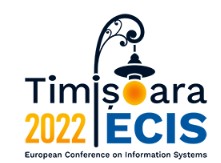Paper Number
1523
Abstract
Virtual influencers, computer-generated characters who are followed by many social media users, are increasingly contracted to endorse products and brands. However, little research has examined their effectiveness in influencer marketing. Filling this gap, we study anthropomorphism, an important feature of virtual influencers, and its role in virtual influencer marketing. Particularly, drawing from the marketing literature, we study four anthropomorphic elements, appearance, moral virtue, cognitive experience, and conscious emotionality, and their effects on followers' purchase intention. These effects are modelled via the mediation of parasocial relationship with and perceived credibility of virtual influencers. Influencer-product congruence is posited as a moderator on the links between two mediators and purchase intention. An online survey will be conducted to test our hypotheses. This research extends the influencer marketing literature by exploring virtual influencer features and their effects on marketing effectiveness and provides knowledge on the anthropomorphism design of virtual influencers.
Recommended Citation
Dabiran, Ehsan; Wang, Fang; and Farivar, Samira, "VIRTUAL INFLUENCER MARKETING: ANTHROPOMORPHISM AND ITS EFFECT" (2022). ECIS 2022 Research-in-Progress Papers. 32.
https://aisel.aisnet.org/ecis2022_rip/32
When commenting on articles, please be friendly, welcoming, respectful and abide by the AIS eLibrary Discussion Thread Code of Conduct posted here.


